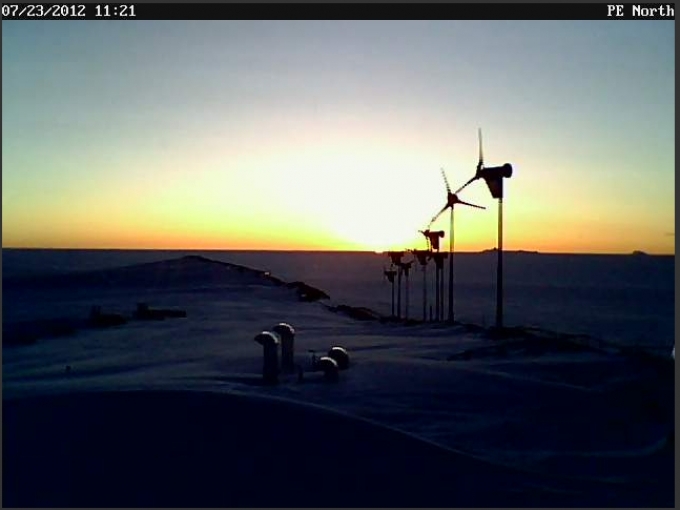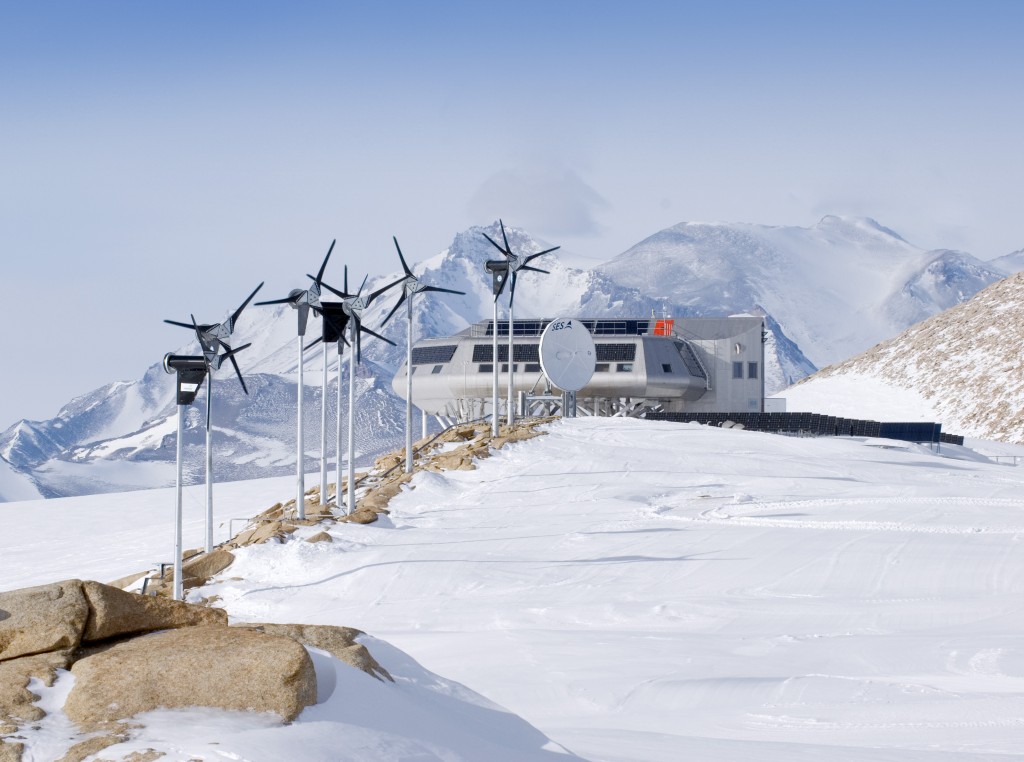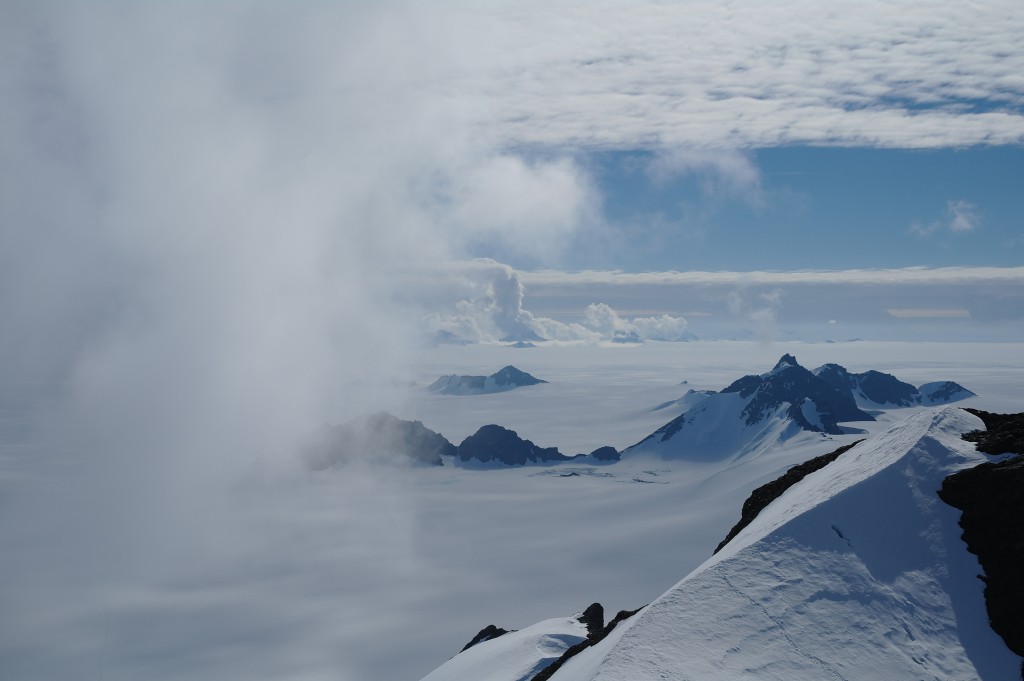74 Search Results for: Antarctic
How can the Antarctic be melting when part of the ice sheet is growing?
One of my colleagues keeps telling me global warming is not really causing ice melt, because the East Antarctic ice sheet is actually growing. Yes, it is indeed, according to the latest comprehensive study taking account of all the available satellite data. But this is in fact consistent with what scientists expect from climate warming. Warming oceans are leading to more precipitation, which falls on the high East Antarctic ice sheet as snow. The situation in West Antarctica and on the Antarctic peninsula are very different. If you find all this interesting, you might like to listen to this Interview with Andrew Shepherd, coordinator of the latest study, supported by NASA and ESA, the European space agency. He explains what the satellites tell us about the state of the polar ice caps and their increasing contribution to global sea level rise.
In case you missed them, you can still catch up on the satellite study and the latest models on sea level rise. At the end of the interview I asked Prof. Shepherd what difference the data could mean to the next IPCC models on sea level rise. He made the point that the real uncertainty in these models is about what emissions trajectory the world’s countries will opt for. Which brings us back to Doha. I’m following the talks with interest, but not much in the way of expectations. The German environment minister told my colleague Andrea Rönsberg in an interview he wasn’t too optimistic about whether the talks would manage to reduce sea level by even a tiny degree. He’s not alone there.
Climate talks too slow for Antarctic sea snails

The pteropod, (marine snail) Limacina hilicina antarctica, Photo: Nina Bednarsek
While the climate negotiations continue at a snail’s pace in Doha, marine snails or pteropods in the Antarctic are losing their shells because of ocean acidification. Researchers from the British Antarctic Survey (BAS) and partners have published the first evidence of ocean acidification affecting live marine creatures in the Southern Ocean. Ocean acidification is caused by the uptake of carbon dioxide from the atmosphere emitted as a result of fossil fuel burning.
![]() read more
read more
Spring sun triggers Antarctic smart grid

Spring sun getting ready to take over from winter wind at Belgium's Antarctic station. Picture from the webcam, taken in July, copyright of International Polar Foundation
As the webcam shows, the sun has returned to Antarctica after the long dark winter. This is at Belgium’s station, Princess Elisabeth Antarctica, the “Zero Emissions Station”, as you may have read before on the Ice Blog. The station is uninhabited in winter, and controlled remotely via satellite. In winter, with no sun aboutj, power comes from wind turbines. Over the last few days, enough sunlight has touched the solar panels to wake up the team of “Sunny Boys” – inverters that convert power coming from the solar panels so that it’s compatible with the station’s electric installation. The first of these awoke on July 15th, along with four others. Now up to ten are running, around half of the station’s total capacity.
With such a small quantity of sunlight, the solar panels aren’t producing much energy yet, but the station’s smart grid is reacting to the end of the long polar night: Princess Elisabeth Antarctica is waking up. “It is all going much faster than expected” says station engineer Erik Verhagen. The humans only return to Princess Elisabeth Antarctica in November, but preparations are already under way for another summer research season.
The only thing that bothers me about this sunny story is that when the sun comes back to Antarctica – we must be heading for autumn here in the north already. The temperature felt like it here in Bonn this morning – but the sun is still providing a fair bit of energy from the solar collectors on the rooftops here.
Warm ocean currents are melting Antarctic ice
 Recent ice loss from Antarctica was mainly caused by warm ocean currents, according to a team of scientists led by British Antarctic Survey. In an article for the journal NATURE this week, they explain how they used new techniques to differentiate for the first time between the two known causes of melting ice shelves – warm ocean currents attacking from below and warm air melting from above. One worrying thing is that this means “we can lose an awful lot of ice to the sea without ever having summers warm enough to make the snow on top of the glaciers melt – the oceans can do all the work from below” says Dr. Hamish Pritchard from BAS, lead author of the report.
Recent ice loss from Antarctica was mainly caused by warm ocean currents, according to a team of scientists led by British Antarctic Survey. In an article for the journal NATURE this week, they explain how they used new techniques to differentiate for the first time between the two known causes of melting ice shelves – warm ocean currents attacking from below and warm air melting from above. One worrying thing is that this means “we can lose an awful lot of ice to the sea without ever having summers warm enough to make the snow on top of the glaciers melt – the oceans can do all the work from below” says Dr. Hamish Pritchard from BAS, lead author of the report.
The warm water melting the ice sheets is causing inland glaciers to speed up and discharge masses of ice into the sea. The reason the water is warming, is probably because of changes in wind patterns, caused in turn by changes in climate. This would mean “Antarctica’s glaciers are responding rapidly to a changing climate” says Pritchard.
Most of the ice shelves being melted by warm ocean currents are in West Antarctica. On the eastern Antarctic Peninsula the shelf thinning found by the study can be explained by warmer summer winds directly melting the snow on the ice shelves.
The results will help improve projections of future sea-level rise.
More here on the website of the British Antarctic Survey
Antarctic research with zero emissions

Turbines to make the best of the Antarctic winds. Photo by René Robert, International Polar Foundation
If there’s one place that definitely isn’t connected to the electricity grid and can benefit from using renewable energies, it’s got to be the Antarctic. Belgium, a country that might not be the first to come to mind when you think of polar research, has its own station, the “Princess Elisabeth Antarctica” station, and it is a “zero emissions” station. The summer research season has just come to an end, and the station says it was one of its most ambitious yet.
![]() read more
read more





















Feedback